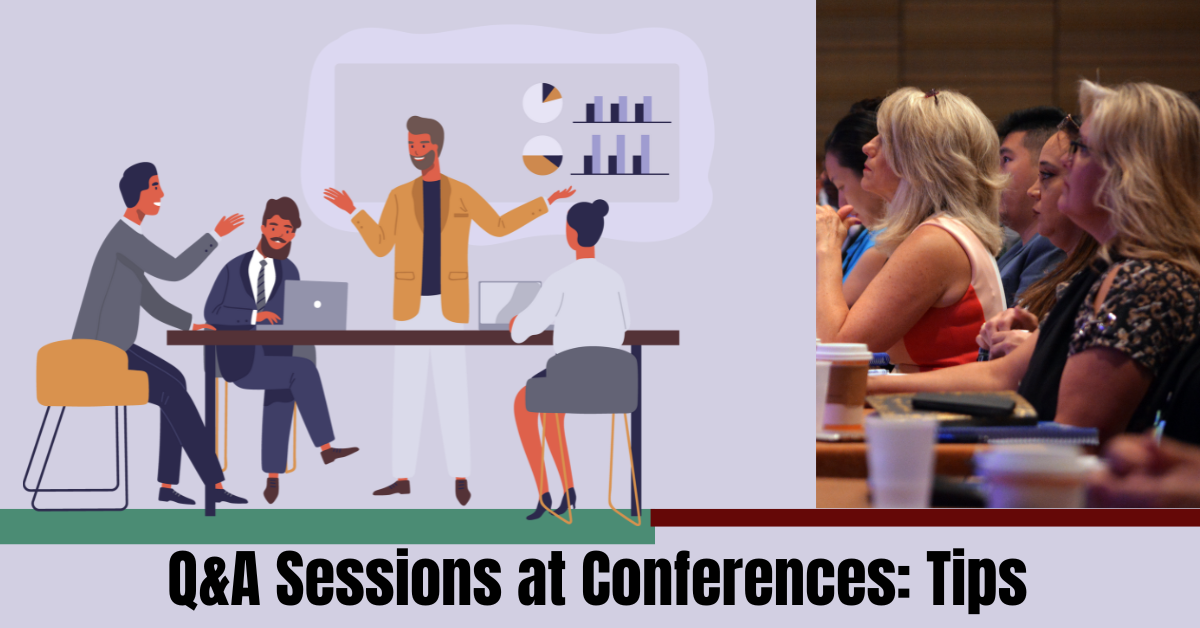Attending international conferences can be a transformative experience, presenting opportunities to network with experts, showcase your research, and gain insights into the latest developments in your field. Costs associated with registration, travel, and accommodation can be daunting. There are several strategies to help you attend these conferences without incurring significant expenses. Provide you with various methods to attend international conferences for free.
1. Apply for Scholarships and Grants
One of the most effective ways to attend international conferences for free is to apply for scholarships and grants. Many conferences offer financial assistance, particularly for students, early-career professionals, and individuals from underrepresented demographics. These funds can cover registration fees, travel expenses, and accommodation.
Steps to Apply:
Research Available Scholarships:
Start by looking for conferences relevant to your field that offer financial aid. Visit the conference’s website for information or contact the organizers directly for specifics.
Prepare Your Application:
Craft a strong application that clearly articulates your need for funding, your qualifications, and how attending this conference benefits both you and the larger academic or professional community. Include necessary documents, such as a resume or CV and letters of recommendation.
Submit Early:
Many scholarships have limited funds and competitive applicant pools, so apply as soon as the scholarship applications open to increase your chances of securing funding.
2. Volunteer at the Conference
Volunteering is an excellent strategy for gaining free access to conferences. Almost every conference relies on volunteers for various tasks, including registration, managing sessions, and providing logistical support.
How to Volunteer:
Contact the Organizers:
Express your interest in volunteering well ahead of the conference date. Some conferences may have specific volunteer application forms available on their websites.
Highlight Relevant Skills:
Demonstrate any relevant skills or experiences that make you a suitable volunteer. Experience in event management, customer service, or technical skills can make you a more appealing candidate.
Commit Fully:
Fulfill your volunteer responsibilities diligently and professionally. Successful volunteering experiences can lead to networking opportunities and positive recommendations for future endeavors.
3. Submit a Paper or Poster
Many conferences offer discounted or free registration to those who submit research papers or posters that are accepted for presentation. This not only saves you money but also enhances your academic profile.
Submission Tips:
Follow Submission Guidelines:
Carefully adhere to the conference’s submission guidelines and deadlines. Failure to comply may lead to automatic disqualification.
Ensure Quality Content:
Submit original research that aligns with the conference theme. Ensure your submission is well-written, backed by evidence, and contributes to ongoing academic discussions.
Prepare for Presentation:
If accepted, invest time into preparing a captivating presentation or a visually appealing poster, as this is an opportunity to showcase your work and make connections.
4. Seek Sponsorship from Your Institution or Employer
Many academic institutions and employers provide funding for their members to attend conferences as part of professional development or research budgets.
How to Seek Sponsorship:
Draft a Proposal:
Create a comprehensive proposal outlining why attendance is essential and what benefits it will generate. Include anticipated costs and a clear explanation of how the conference aligns with your work goals.
Present to Decision-Makers:
Submit your proposal to higher-ups such as your department chair, supervisor, or professional development committee.
Follow Up:
Be persistent in following up on your request. Be ready to provide additional information to strengthen your proposal.
5. Leverage Professional Networks
Networking can provide opportunities that may not be readily accessible. By cultivating relationships with colleagues, mentors, and industry professionals, you may find avenues to attend conferences for free.
Networking Strategies:
Join Professional Associations:
Becoming a member of relevant professional associations can provide access to funding opportunities for conference attendance and external sponsorships.
Attend Local Events:
Participate in local workshops and seminars to build professional connections. These contacts may offer advice or even sponsorships for larger conferences.
Engage via Social Media:
Use platforms like LinkedIn and Twitter to engage with professionals who are active in your field. Following conference organizers and participants can keep you updated on funding opportunities.
6. Participate in Competitions and Contests
Some conferences host contests or competitions that offer free registration or travel grants as prizes. This could include research competitions, innovation challenges, or essay contests.
How to Participate:
Stay Updated:
Regularly check conference websites and associated professional forums for announcements regarding competitions. Subscribe to newsletters to remain informed.
Prepare High-Quality Entries:
Ensure your submissions meet all competition criteria and effectively showcase your expertise and creativity.
Engage Actively:
Some competitions may require presentations or interviews. Approach these tasks with professionalism to enhance your chances of winning.
7. Write for Media Outlets
If you excel at writing, consider becoming a conference reporter for established media outlets. Many publications will sponsor journalists to attend conferences in exchange for coverage.
Steps to Write for Media:
Pitch Your Idea:
Contact editors of relevant publications with a proposal to cover the conference, detailing your unique angle.
Showcase Your Writing:
Provide samples of your previous work to demonstrate your writing ability and understanding of the subject matter.
Deliver Engaging Content:
Write compelling articles about conference sessions, keynotes, and general experiences to fulfill your reporting deal.
8. Join Conference Committees
Joining the organizing committee for a conference can provide you access to the event at no cost. This role involves planning and execution, allowing you to learn valuable skills while participating in the conference.
How to Join:
Express Interest:
Reach out to conference organizers expressing your desire to contribute to the committee.
Highlight Relevant Experience:
Share any relevant experience in event management or research organization that could benefit the conference.
Commit to Responsibilities:
Be prepared to take on meaningful responsibilities, showcasing initiative and professionalism in executing them.
9. Crowdfunding
Crowdfunding is a resourceful way to raise funds for attending a conference. Platforms like GoFundMe or Kickstarter allow you to pitch your funding goal to your network and solicit donations.
How to Crowdfund:
Create a Campaign:
- Set up a crowdfunding campaign with a clear and compelling narrative explaining why you wish to attend the conference. Highlight how this opportunity will benefit your professional development and, potentially, the wider community or industry.
Share Widely:
- Promote your campaign through various channels such as social media, email newsletters, and professional networks. The more visibility your campaign receives, the higher the chances of reaching your funding goal.
Engagement:
- Keep your campaign updated and engage with your contributors. Share your progress, explain how the funds will be used, and provide insights into your experiences leading up to and during the conference.
Show Gratitude:
- Always express appreciation to your donors. Consider sending thank-you notes and sharing updates post-conference to inform them about your experiences and what you gained from attending.
10. Look for Early Bird Discounts and Group Rates
While not entirely free, early bird registration discounts and group rates can significantly reduce the cost of conference attendance. These discounts are typically available for a limited time, so acting quickly is crucial.
How to Save:
Register Early:
- Keep an eye on registration dates and take advantage of early bird discounts by signing up as soon as registration opens.
Form a Group:
- If you work within an organization or study at an institution, coordinate with colleagues to register as a group. Many conferences offer substantial discounts for groups, which can help everyone save on individual costs.
11. Exchange Services for Attendance
Some conferences may be open to bartering services in exchange for free attendance. This might involve offering to speak at the event, providing technical support, or assisting with their marketing efforts.
How to Offer Services:
Identify Needs:
- Research the conference and determine potential areas where they may need help, such as logistical support, content creation, or technology assistance.
Propose a Trade:
- Reach out to the organizers with a concise proposal that outlines the services you can provide in return for free registration. Clearly articulate how your skills align with their needs.
Deliver Professionally:
- Ensure your work is of high quality and meets their expectations to maintain a good relationship with the organizers, which could lead to future opportunities.
12. Utilize Travel Grants and Fellowships
Various organizations offer travel grants and fellowships specifically aimed at supporting attendance at conferences. These grants can cover travel expenses, accommodation, and registration fees.
How to Apply:
Research Opportunities:
- Look for travel grants and fellowships offered by professional societies, academic institutions, and non-profit organizations that align with your field or research interests.
Prepare a Strong Application:
- When applying, ensure you include a detailed budget, a clear statement of purpose, and any required supporting documents. Highlight your professional goals and the conference’s relevance to your work.
Submit on Time:
- Be mindful of application deadlines and follow the guidelines carefully to ensure your submission is complete and competitive.
Attending international conferences can provide invaluable experiences and insights into your field, but overcoming the financial barriers is crucial. By exploring various strategies — from scholarships and volunteering to crowdfunding and service exchanges — you can significantly reduce or eliminate the costs associated with attending these events.
Key to success is to be proactive, well-prepared, and persistent. Start planning early, explore all available options, and don’t hesitate to reach out to conference organizers and potential sponsors. With the right approach and determination, you can gain access to the enriching experiences that international conferences offer without the financial burden.




